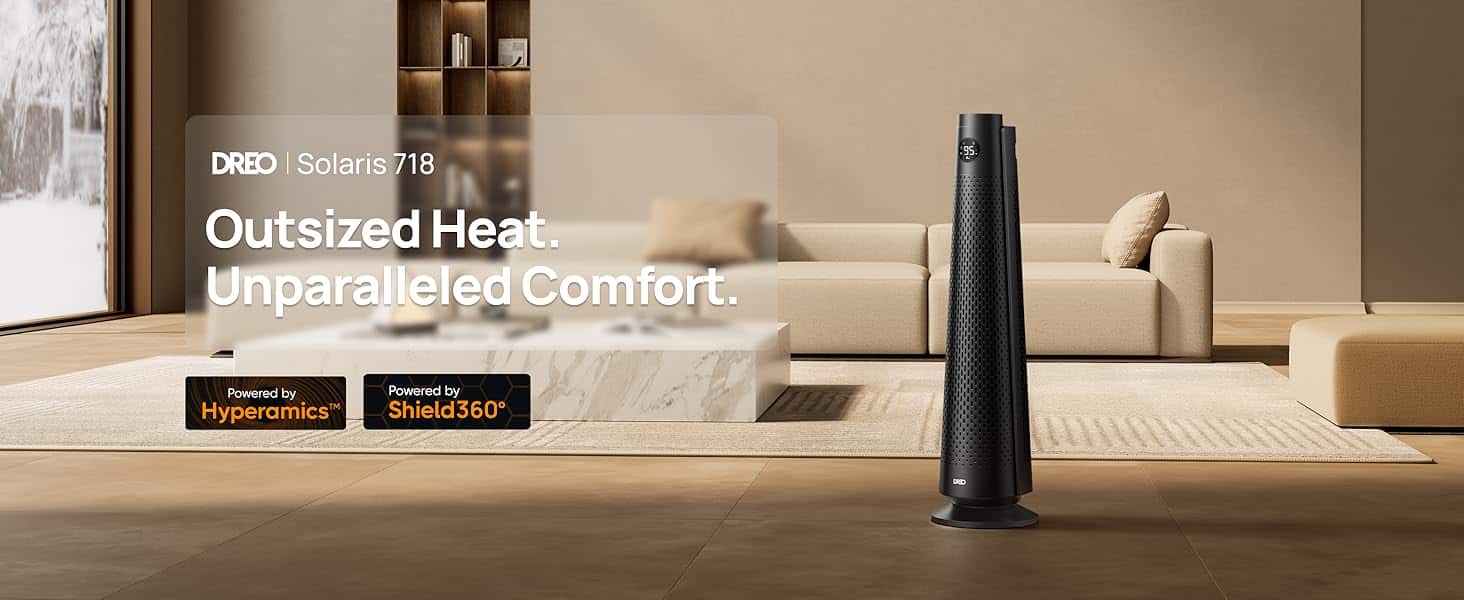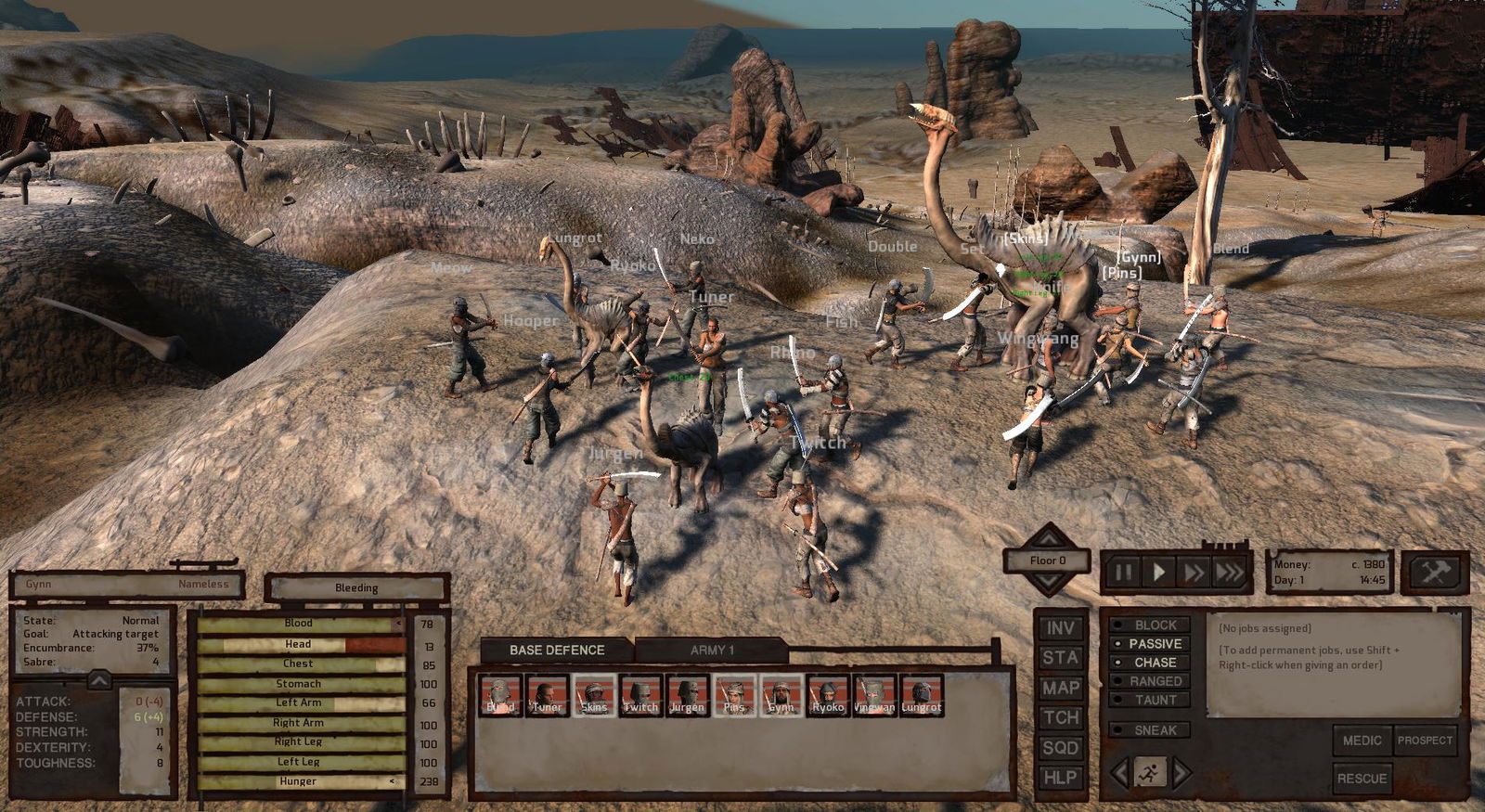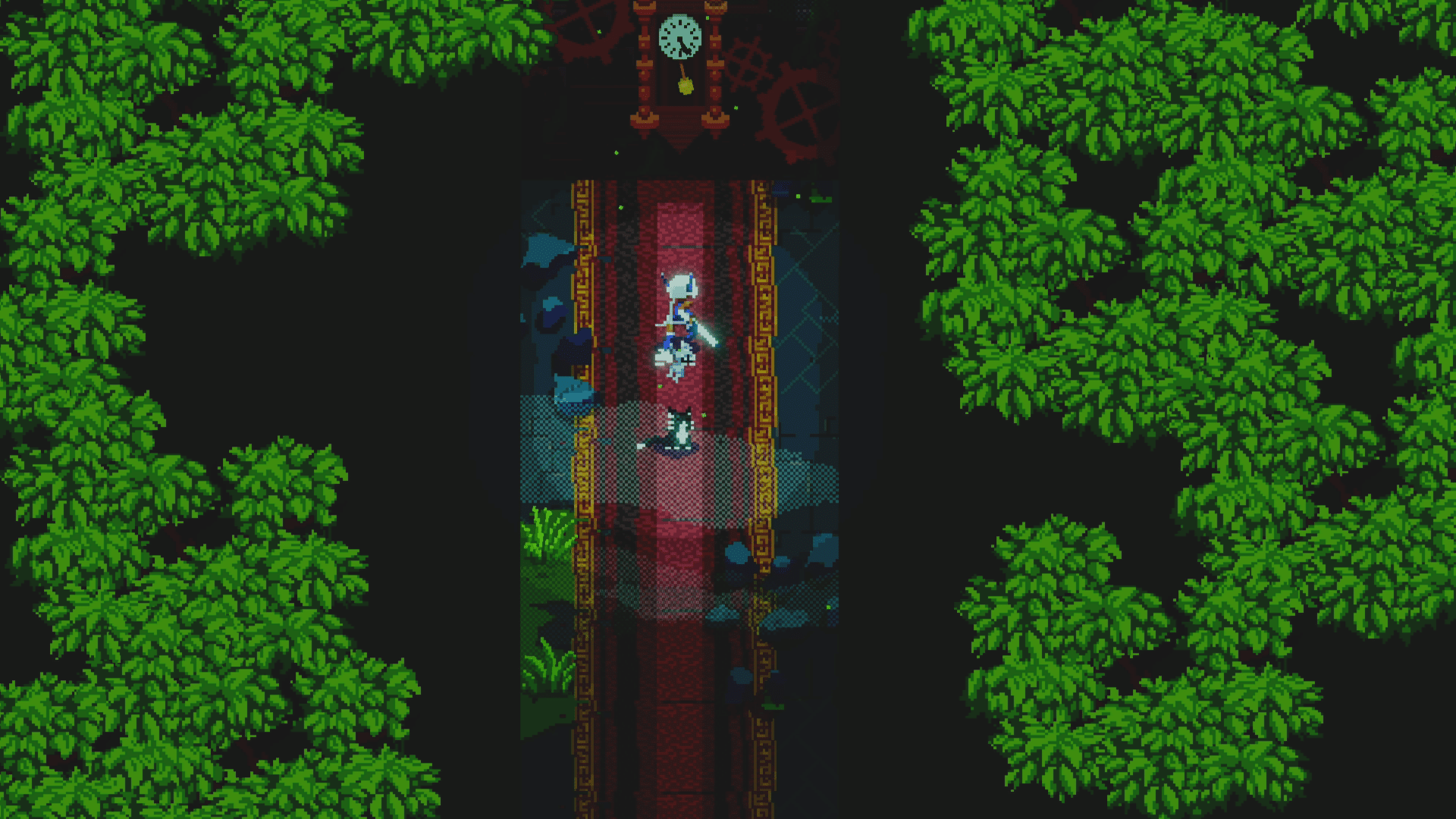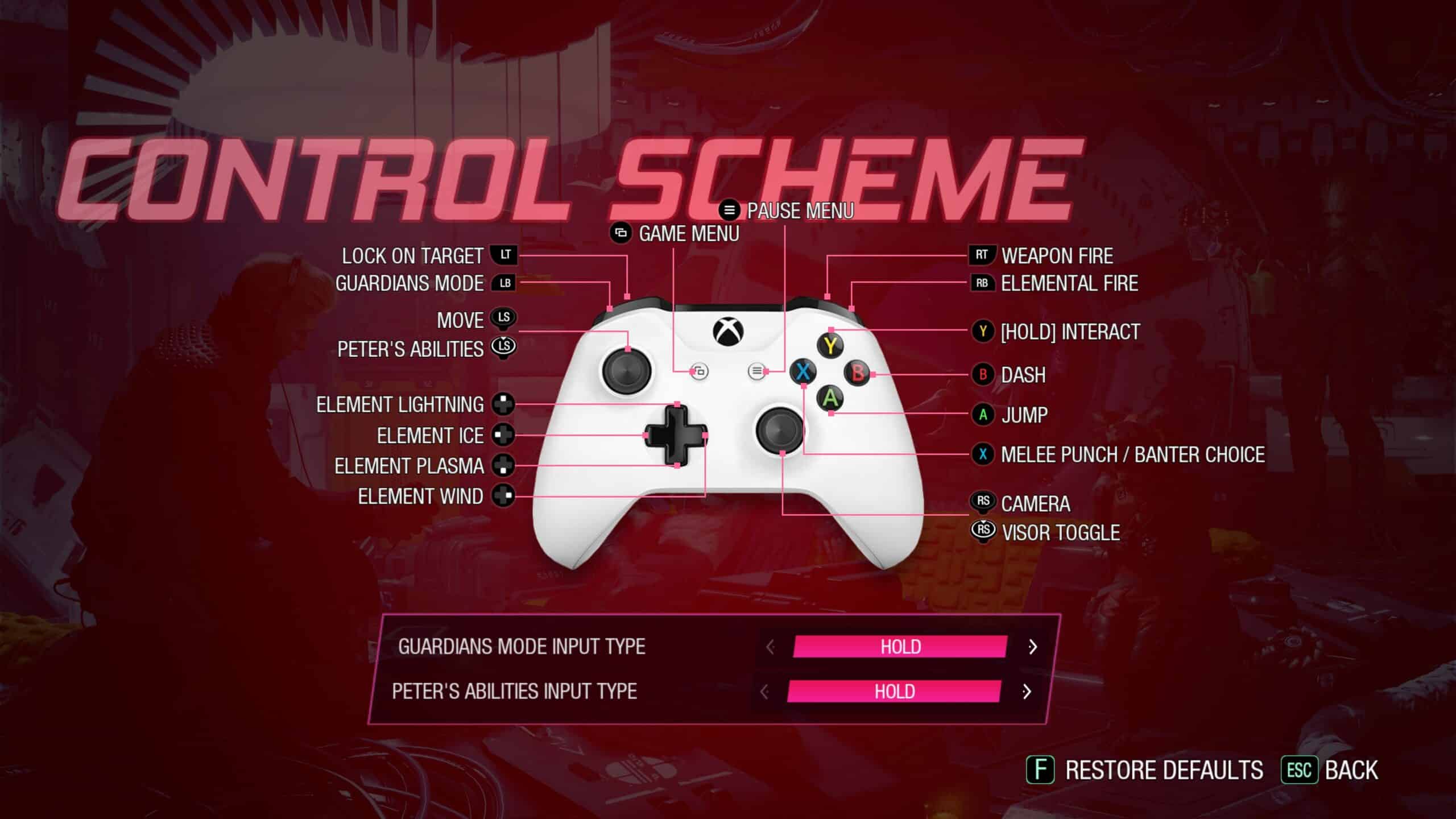As technology continues to evolve, so does our expectations towards it. Companies like Bang & Olufsen or Oransi have turn their products into statement pieces. Recently, Dreo has done something similar with a number of different lines, with the latest being Solaris 718. The fascinating space heater certainly looks interesting, but given the changes in design is it style over substance, or a bold step forward?
Dreo Solaris 718 Review Overview
Unboxing
Like all newer Dreo appliances, Solaris 718 comes in a surprisingly simple package. There are a couple images of the product, with the remaining information being the usual legal boiler plate.
Inside if a simple Styrofoam holder, documentation, Solaris 718, and a remote.
Accessories
Dreo included a Quick Start Guide, user manual, and remote with Solaris 718. One side of the Quick Start Guide is centered on safety, with the other explaining how to operate it. Anyone looking for a bit more can read the full manual, which includes 17 pages of helpful information.
The included remote is also different from previous Dreo products we’ve reviewed. It’s the same basic size, with larger buttons that are more spaced out. I imagine some people will prefer this set up, though I view it as a step backwards due to the new backing.
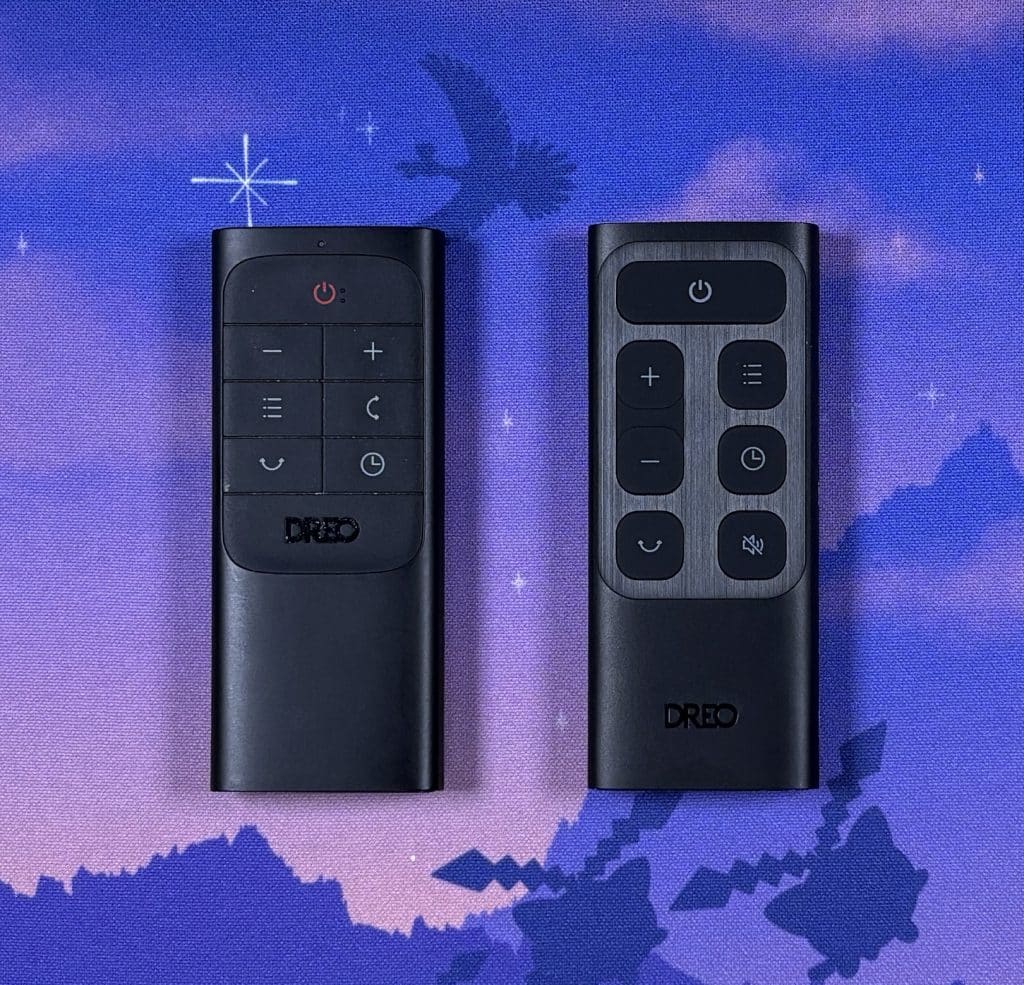
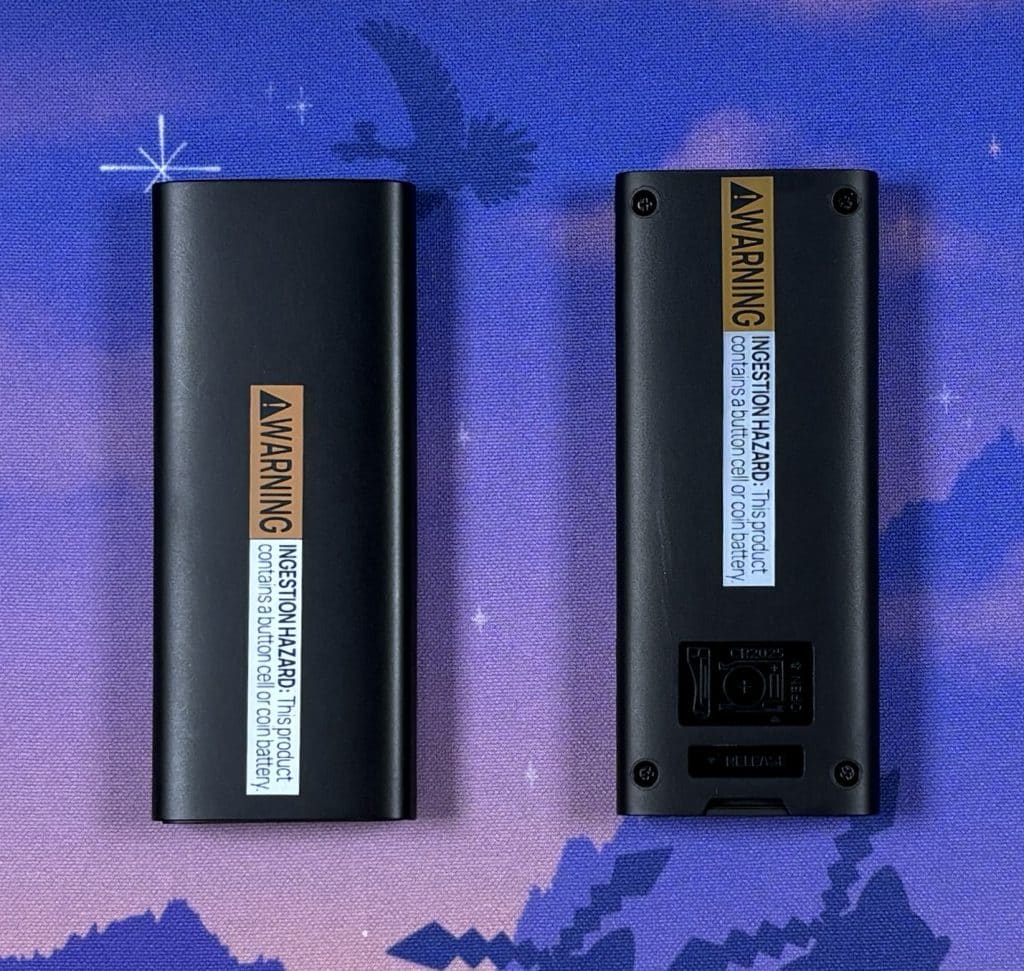
Old Remove vs New Remote
Their older remotes had the entire button section covered in a rubber like material. As a result it’s smooth to the touch. On this remote the back part is replaced with a piece of plastic textured to look like metal. It reminds me a lot of my Sony remote, though unlike it the Dreo remote is abrasive to touch. Dreo also removed the bumps that indicate the power button, making it harder to use in the dark.
Design
Needless to say, I am a huge fan of Solaris 718’s look. The cone design is unique in such a way that it more closely resembles an accent piece. I could easily see leaving this out without being embarrassed by it when people came over. In fact, I had a few people ask about it prior to writing this review because they did not expect it to be a space heater/fan.
Exquisite Design
Another nice touch is a small area on the back to safety transport Solaris 718. Not only is it safe to touch, even if it’s in operation, there is a small slot below that securely holds the remote. It doesn’t go completely flush, it sticks out about an inch, though it’s still a thoughtful element that doesn’t take away from the aesthetic.
Safety
Due to how space heaters work there are certain safety concerns. Among the most common is the device falling over for one reason, or another. In the event this happens Solaris 718 will read error code P4 within a couple seconds, let out a couple loud beeps, and finally cease operation.

There is also an overheat protection mode that works similarly. This is something I wasn’t able to experience first hand, but in the event it happens it will display error code FF before turning off.
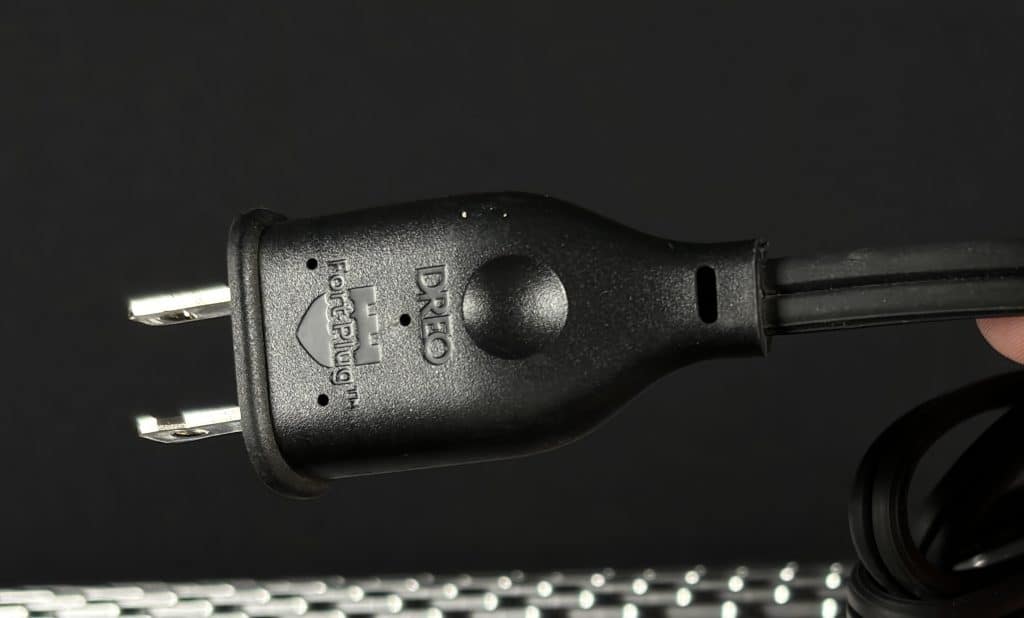
Finally, Dreo includes their FortPlug technology on every Solaris 718 model. This plug is able to detect overheating with a warning at “185°F” to prevent accidents. In the event this happens, it will display a PP error, with users urged to examine the socket/plug before continuing operation.
Cleaning
To clean Solaris 718 simply turn it over, remove a single screw on the back, lift up on the grate, and remove it.
Since this gives access to the heating unit, make sure it was not recently in use. After cleaning, return the grate to the back, push down, and securely screw it in place.
Performance (Heat)
To test Solaris 718 I set it up in my office, tried the lowest heat setting (H1), and the highest (H5) three different times to see how quickly it could heat my room in 20 minutes. I also used my Dreo Wall Mounted heater at its highest level (H3) under the same parameters, and approximate location.
The results of my tests can be found below. Please note, Sol is short for Solaris 718, and Wall stands for Dreo’s Wall Mounted heater. All times are also an average rounded to the nearest minute. Every test was conducted with a starting temperature of 77°F (25°C).
| Sol H1 | Sol H5 | Wall H3 | |
| 1°F | 2 min | 3 min | 2 min |
| 2°F | 4 min | 5 min | 4 min |
| 3°F | 7 min | 8 min | 6 min |
| 4°F | 9 min | 10 min | 8 min |
| 5°F | 16 min | 12 min | 11 min |
| 6°F | N/A | 17 min | 20 min |
Overall, I am satisfied with Solaris 718’s performance. Regardless of power, I saw an increase of approximately 4°F in 10 minutes. This is great for quick relief, or trying to fight a quick chill.
In addition to that, Solaris 718 at H5 kept up with the Dreo’s Wall Mounted heater. Since we tested that last Oct. with a starting temperature of 69°F, it’s reasonable to conclude it should achieve the same 8°F increase in under 15 minutes at a lower starting temperature.
Performance (Cooling)
While it’s always nice to see this feature on a space heater, it simply won’t replace a fan. This is largely due to slow speeds, and a small area of effect. It’s honestly best for situations where a little cooling is needed, or just cycle air in the room.
Noise
Solaris 718 does a pretty good job with noise. When set to H3 or lower it’s barely audible, with H5 being similar to a fan at modest speed. Anyone who wants to further limit noise can set a desired temperature, or enable eco mode.
Setting it to fan mode will give similar results. There is a little ambient noise that should blend into the background.
DREO Solaris 718 Review Verdict
All things considered I genuinely like Solaris 718. It features an eye catching design without sacrificing performance. That, coupled with multiple safety features, makes it a solid option as we enter the winter season. The only real negative is the lack of smart features, something their Wall Mounted heater supports, though that comes with its own disadvantages.
Editor’s Note: Dreo Solaris 718 was provided to us for review purposes.

